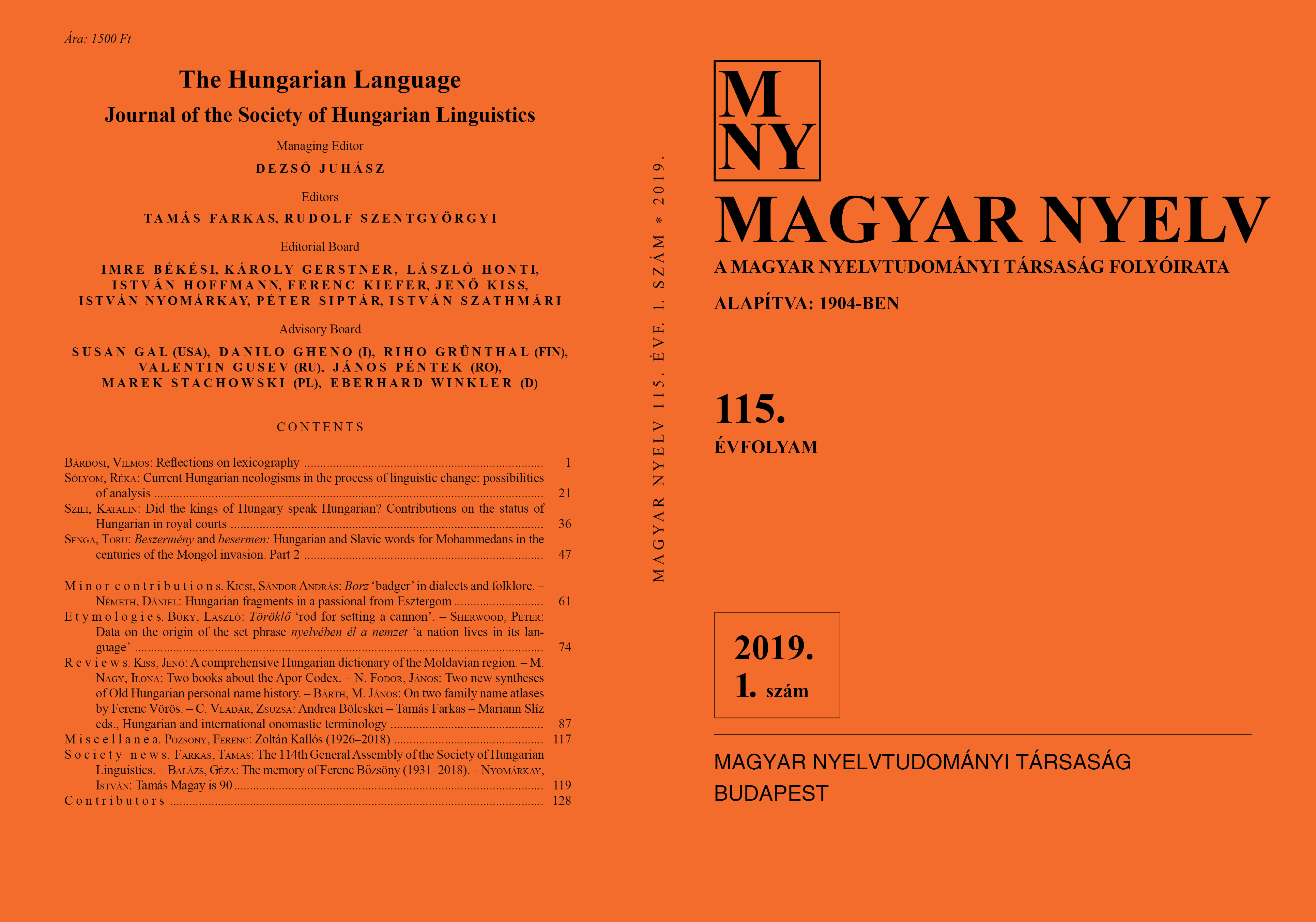Reflections on lexicography
DOI:
https://doi.org/10.18349/MagyarNyelv.2019.1.1Keywords:
theoretical lexicography, practical lexicography, dictionary makingAbstract
A dictionary, just like the Bible, can be called the book of books, the number one book of the language of each nation. Anatole France is often quoted as saying “a dictionary is the whole universe in alphabetical order”, a book that contains all other books: you just have to retrieve them. Its author, the lexicographer, plays an important social role by inevitably contributing to the emergence and development of linguistic norms, even though he does not want to set norms, and should not even be expected to do so. By presenting the dominant stock of words and expressions, the dominant use of the given language, he participates in its legitimization, dissemination, and the formation of future linguistic norms. Bilingual and multilingual dictionaries that contain plenty of language-dependent cultural stereotypes, on the other hand, can be seen as a kind of intercultural bridge between and across languages. The paper sketches the major challenges of a lexicographer’s work, the organisation of the micro- and macrocosmos of a dictionary, including the difficulties it involves, and also digresses to a comparison of printed and digintal/online dictionaries.
Downloads
Published
Issue
Section
License
Copyright (c) 2024 Vilmos Bárdosi

This work is licensed under a Creative Commons Attribution-NonCommercial-NoDerivatives 4.0 International License.
Magyar Nyelv is a Diamond Open Access periodical. Documents can be freely downloaded and duplicated in an electronic format, and can be used unchanged and with due reference to the original source. Such use must not serve commercial purposes. In the case of any form of dissemination and use, Hungarian Copyright Act LXXVI/1999 and related laws are to be observed. The electronic version of the journal is subject to the regulations of CC BY-NC-ND (Creative Commons – Attribution-NonCommercial-NoDerivatives).
The journal permits its authors, at no cost and without any temporal limitation, to make pre-print copies of their manuscripts publicly available via email or in their own homepage or that of their institution, or in either closed or free-for-all repositories of their institutions/universities, or other non-profit websites, in the form accepted by the journal editor for publication and even containing amendments on the basis of reviewers’ comments. When the authors publicize their papers in this manner, they have to warn their readers that the manuscript at hand is not the final published version of the work. Once the paper has been published in a printed or online form, the authors are allowed (and advised) to use that (post-print) version for the above purposes. In that case, they have to indicate the exact location and other data of the journal publication. The authors retain the copyright of their papers; however, in the case of an occasional secondary publication, the bibliographical data of the first publication have to be included.



